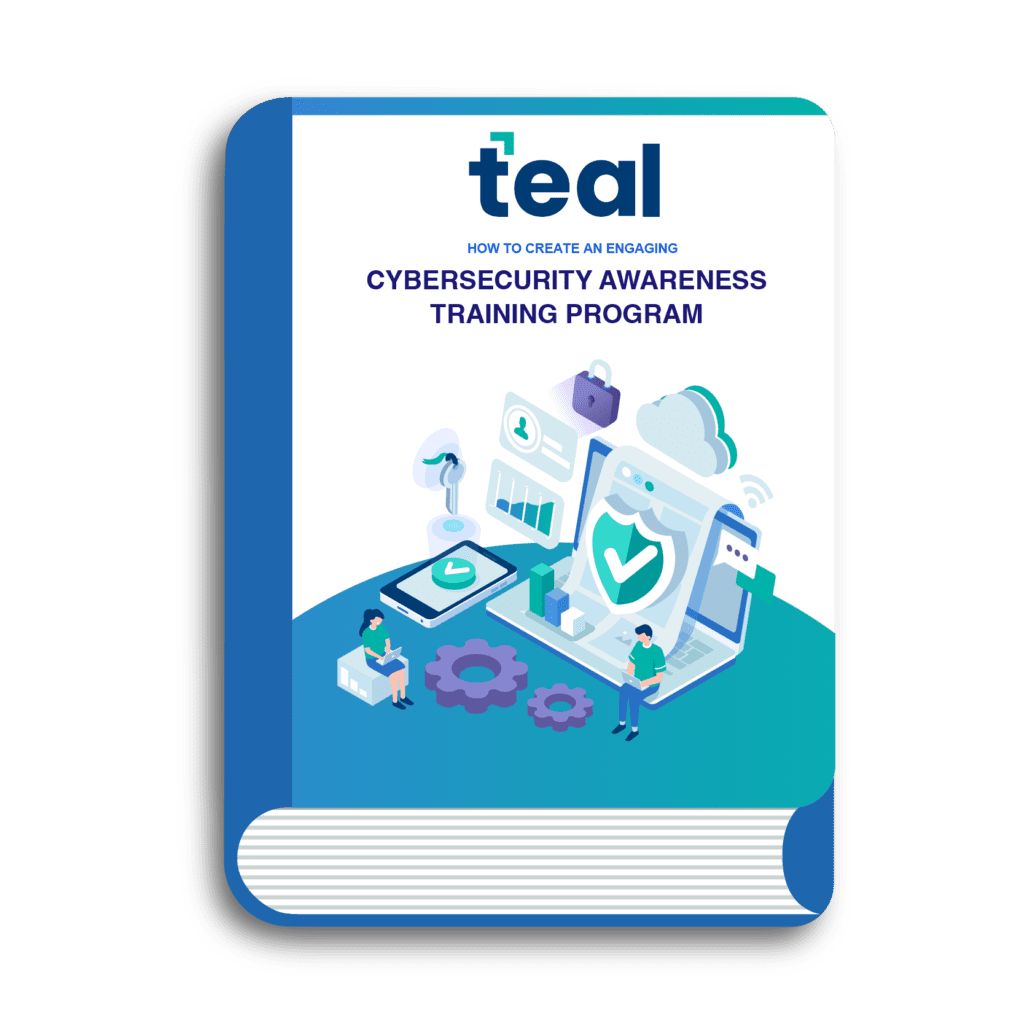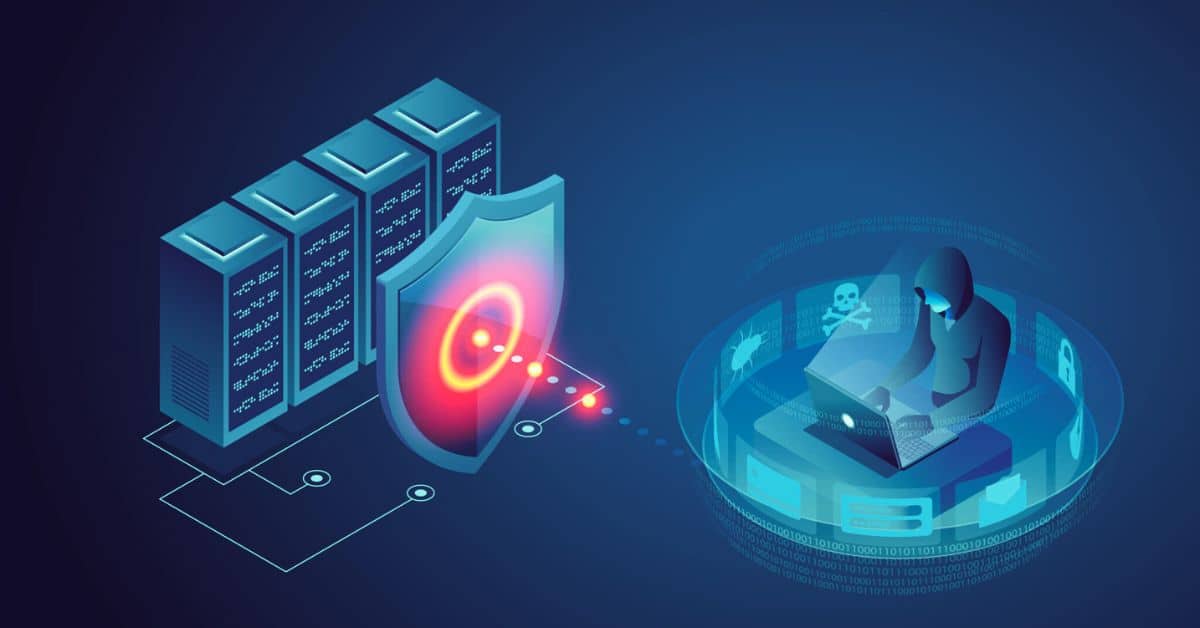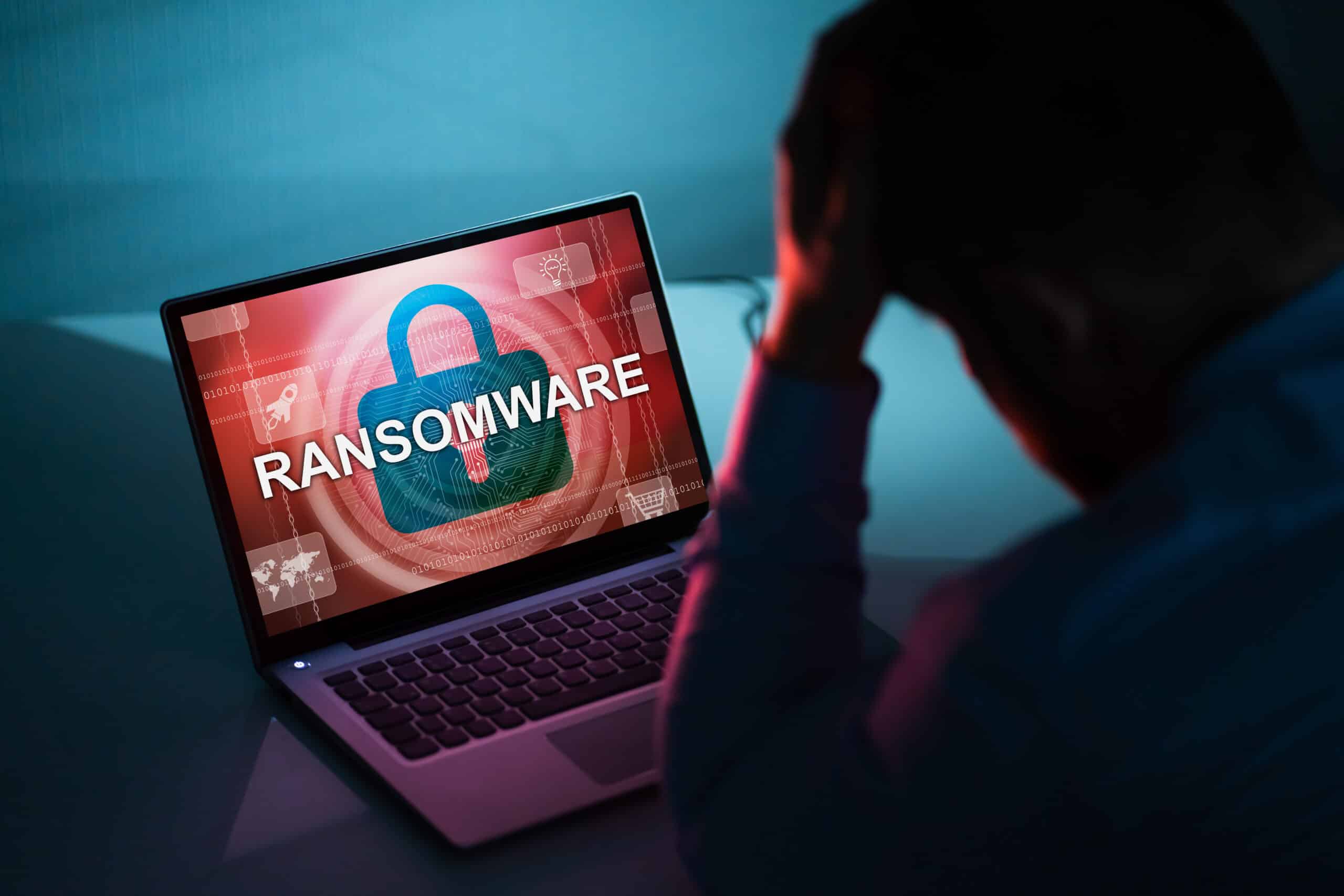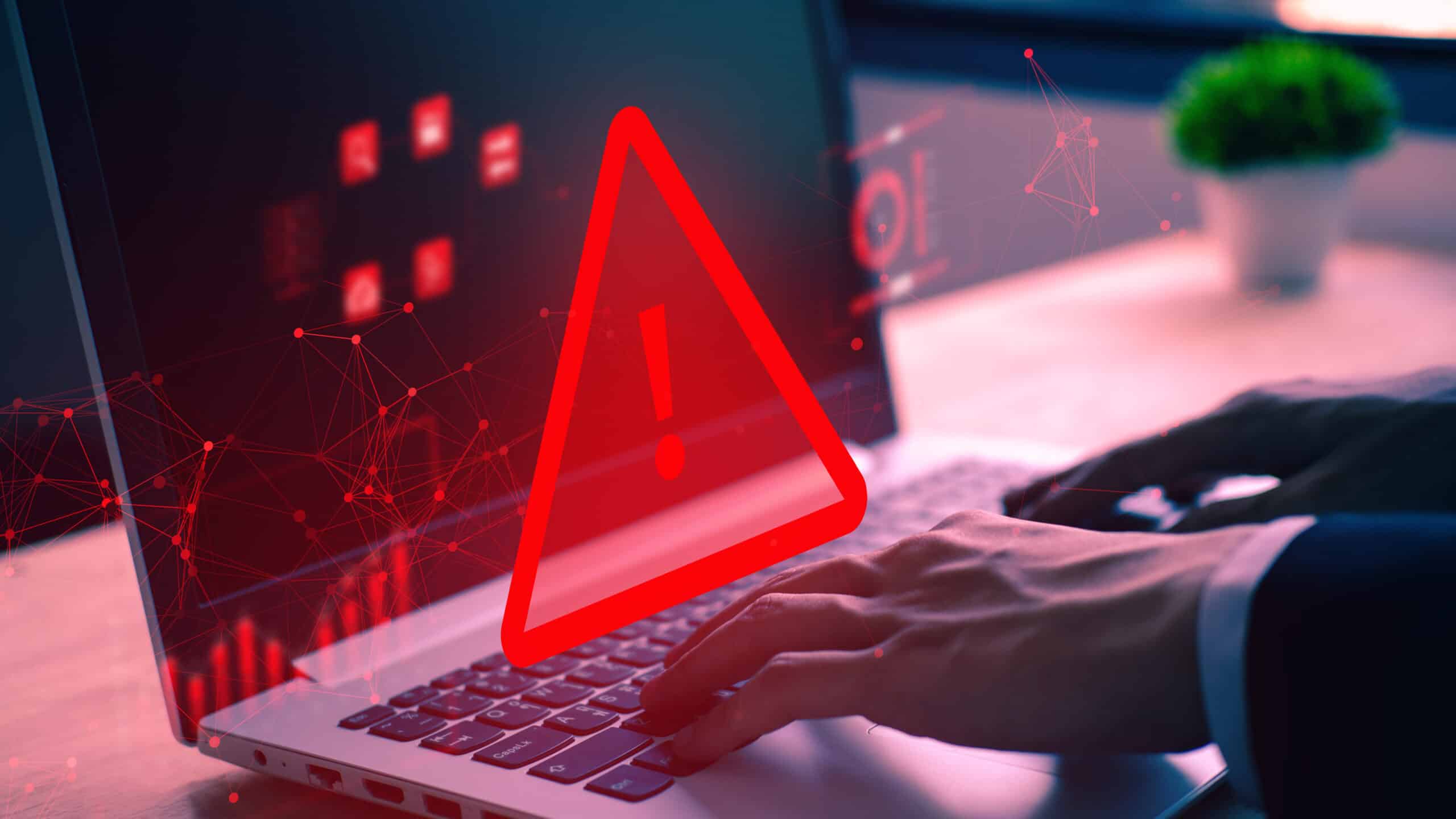Keeping your business data safe isn’t limited to your work or home office. If you or your staff work while traveling, make sure you are using cybersecurity best practices to prevent an unwanted breach.
Use these 20 tips to keep your small business’s data secure.
20 Cybersecurity Travel Tips
Need this for later? Download our tip sheet and take the information with you!
Before Traveling
1. Backup Your Data
Make sure your data is backed up before you leave. That way, you can recover your information if your device is lost, damaged, or stolen.
2. Update Your Devices Before Traveling
Ensure all business devices are updated with the latest security patches and antivirus software before departure.

3. Ensure Your Device is Encrypted
If someone gets ahold of your device, encryption makes it infinitely harder for them to get to your data.
4. Use Strong, Unique Passwords
Always use strong and unique passwords for different accounts to reduce the risk of unauthorized access.

5. Use a Password Manager
Whether you’re on a work trip or working on vacation, chances are that you’ll need to make reservations online. Using a password manager that provides system-generated passwords makes it much harder for hackers to guess it. Plus, it saves all your passwords for you. So, you’ll have the added convenience of easily accessing any websites you frequent without having to remember them.
6. Make Sure Multi-Factor Authentication (MFA) is Enabled
MFA should always be used when available. However, if it’s not, ensure your accounts are secured with MFA to add an extra layer of security beyond passwords.
7. Enable Pins on Your Mobile Device
Make sure your PIN is enabled on your mobile device. That way if someone gains access to it, they won’t be able to open it and access your data easily.

8. Use a Mobile Device Management (MDM) Solution
Managing and securing mobile devices with an MDM solution can help wipe data remotely in case of theft or loss.
9. Notify Your Financial Institutions
Inform your bank and credit card companies of your travel plans. This will not only avoid fraud alerts at your destination but transactions outside of that region can be scrutinized more closely.
10. Don’t Share Travel Plans Online
Hackers like to target people using the information they find online, like social media sites. Lower your cyber risk by sharing your plans with your friends and loved ones offline.

11. Create a Security Travel Kit
Make sure you provide your staff with clear guidelines on how to travel with business data. Additionally, give them information on how to create a travel kit to help keep their business and personal data safe. This kit can include items like:
Security Travel Kit
- Cable locks
- Encrypted USB drives
- Portable mobile phone charger
- International power adapters
- Portable Wi-Fi hotspot for secure internet access
- RFID-blocking wallets to protect credit cards
- IT support contact information in case they run into an issue
- Privacy screens

Data doesn’t just sit in an office anymore. It travels with us. Equip your team with this checklist of 19 essential practices to safeguard business data while on the go.
While Traveling
12. Only Use Trusted Devices
Don’t use public computers for business-related work – such as those in hotel lobbies or airports. They may contain keystroke loggers and malware that can compromise your data. Always use your own devices.
13. Be Cautious of Public Wi-Fi
Be careful when considering connecting to unknown networks. Even at locations you think are secure – like coffee shops, malls, hotels, and airports.

Just because there’s a network available in those locations doesn’t mean that it’s being sponsored by the owner of that establishment. It could be hosted by someone with a hotspot they stood up for malicious reasons.
14. Use Virtual Private Networks (VPNs)
Always use a VPN to connect to the internet to encrypt traffic while traveling. Especially if you decide to connect to a public Wi-Fi network.
15. Be Aware of Phishing Scams
Stay vigilant for phishing campaigns – which may increase while traveling. Hackers like to take advantage of the fact that you’re distracted. Make sure you verify any unexpected requests by calling or texting a known number.

Summer on the Horizon?
Be on the lookout for malicious, vacation-themed phishing emails. Check Point Research estimates that one in every 83 are malicious or suspicious. Hackers use phishing scams to direct you to these dangerous domains to get your login credentials.
16. Disable Auto-connect Features
Turn off Wi-Fi auto-connect and Bluetooth discoverability to prevent devices from inadvertently connecting to malicious networks or devices.
17. Maintain Your Physical Device
Make physical security a priority. Always maintain awareness of where your devices are. When they’re not on your person, make sure they’re secured – such as in a hotel safe.
Thieves like to check hotel rooms for unattended laptops during meal times. Be especially cautious if you are attending a conference or trade show. These types of venues offer thieves a larger selection of devices that are likely to contain sensitive information – which gives them more opportunities.
Additionally, consider using privacy screens on laptops and mobile devices when you use them in public places.
18. Maintain Document Security
Traveling with sensitive business documents? Like your electronic devices, make sure you secure them when not in use. Additionally, shred any documents you want to discard while you’re away from your office.

19. Check Credit Card Readers
Hackers like to attach card skimmers to credit card readers on ATMs or gas pumps. If you’re using credit card machines to pay, gently shake and pull the card reader to see if it’s loose. If it looks like it has been tampered with, pay inside and report it.
Learn more about card skimming in Security National Bank’s article.
20. Don’t Use Public Mobile Device Charging Stations
Don’t be tempted to charge your electronic devices at free USB port charging stations – like the ones you’ll find in airports and hotel lobbies. Hackers can, and do, load malware onto these charging stations to maliciously access your devices while they are being charged.

This cyberattack is called juice jacking. Once malware is installed from a corrupted USB port, hackers can lock your device or export your data and passwords. They can then use that information to access online accounts or sell it to other bad actors on the Dark Web.

Data doesn’t just sit in an office anymore. It travels with us. Equip your team with this checklist of 19 essential practices to safeguard business data while on the go.
Security Awareness Training is a Must – Year-round
Security awareness is important while traveling, at the office, and at home. It’s no longer just IT’s job to maintain business security. It’s everyone’s responsibility. Your entire team – from volunteers to C-suite executives – should be receiving security awareness training and simulated phishing campaigns.
We recommend conducting this once a month for maximum effectiveness. The more engaging your security awareness training is, the better.
Want to learn more about security awareness training?

Learn how to implement an engaging and successful cybersecurity awareness training program.
Additional SMB Cybersecurity Resources
Ensure you’re using cybersecurity best practices daily. Use these resources to enhance your small- to medium-sized business’s cybersecurity posture.
Cybersecurity & Infrastructure Security Agency (CISA)
Teal Managed Security Services
Think Defensively at All Times
It’s important to always remain vigilant for cyber threats – even while traveling. Letting your guard down for just a few minutes can give hackers everything they need to compromise your personal or business data. But now, you have everything you need to reduce your risk.
Be sure to share these cybersecurity travel tips with your staff, partners, and business associates.
By doing so, you’ll also help safeguard against the potential repercussions of third-party data breaches. This collective effort is important in strengthening your digital defenses and ensuring your data’s integrity.
Get the Cybersecurity Protection You Need Today
Teal offers responsive and secure managed IT services to SMBs nationally, with local business IT solutions provided in:
Established in 2000, we enrich lives by delivering ultra-responsive services, prioritizing integrated cybersecurity, and investing in our staff.
Contact us today if you’d like to learn more about our managed cybersecurity solution or explore the 11 most important managed IT services for small businesses.














